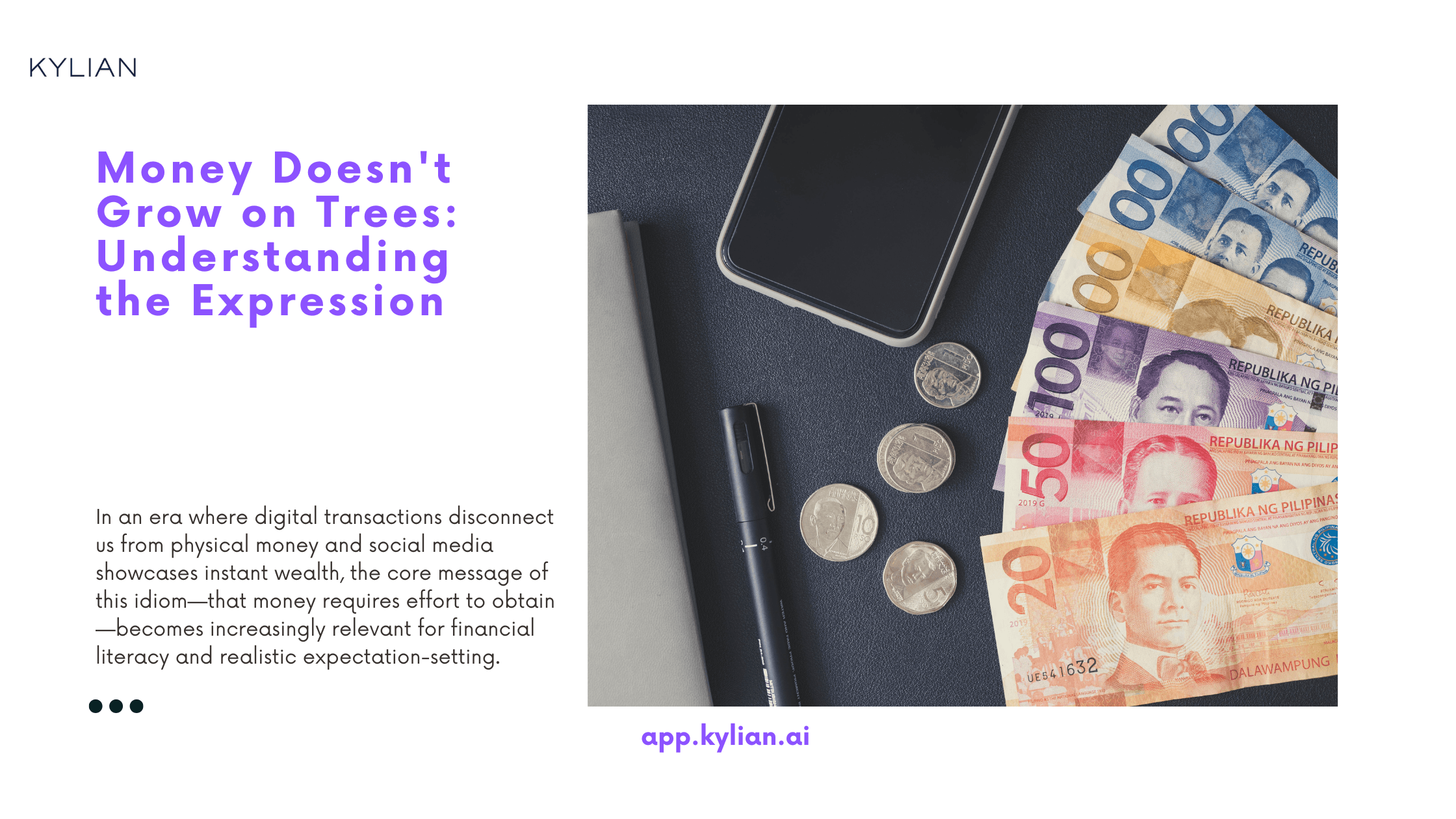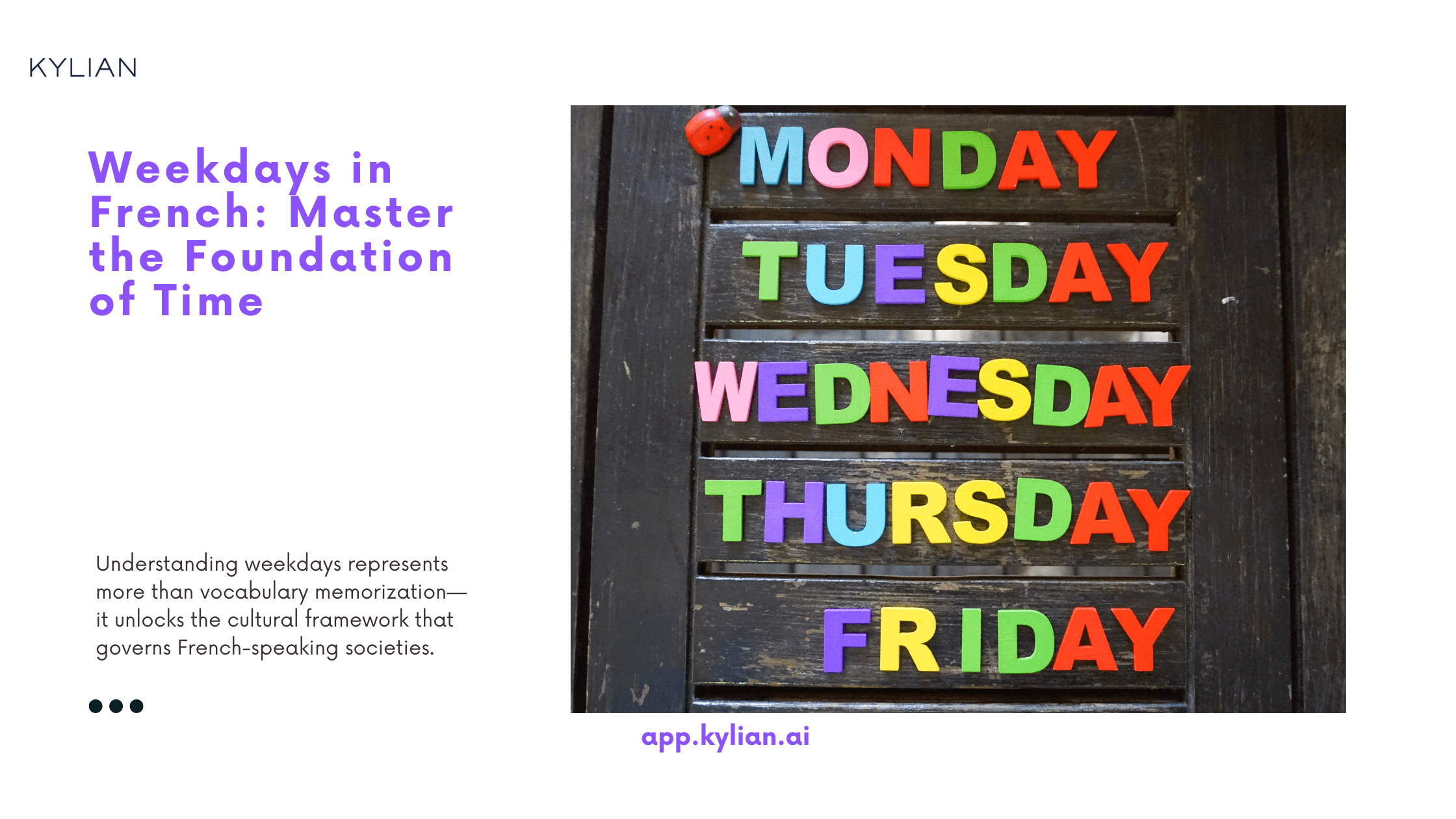![Happily Ever After Meaning Explained [English]](/_next/image?url=https%3A%2F%2Fcdn.sanity.io%2Fimages%2F147z5m2d%2Fproduction%2F9b6b61084f436bb5ecbe1968913c598d9fa2eda7-2240x1260.png&w=3840&q=75)

Happily Ever After Meaning Explained [English]
The phrase "happily ever after" carries weight far beyond its simple construction. While most recognize it as the traditional conclusion to fairy tales, its cultural significance reveals deeper truths about human psychology, storytelling conventions, and our collective relationship with idealized outcomes. This exploration matters because understanding this phrase illuminates how language shapes our expectations of life, love, and personal fulfillment. "Happily ever after" functions as more than narrative shorthand—it represents a culturally embedded promise that perfection exists and remains attainable. The phrase encapsulates the human desire for resolution, permanence, and unending contentment. Yet this seemingly innocent expression carries implications that extend into real-world relationship expectations, personal goal-setting, and psychological well-being.


Contractions in English: Master Confident Speaking & Writing
Effective communication hinges on understanding when and how to compress language without losing meaning. English contractions represent one of the most fundamental yet misunderstood aspects of both spoken and written English, directly impacting how native speakers perceive your fluency and professionalism. The strategic use of contractions separates competent English users from those who sound robotic or overly formal in inappropriate contexts. This linguistic tool affects everything from job interviews to casual conversations, making its mastery essential for anyone serious about English proficiency.


Most Sensual Languages: Heart Rate Data Reveals All
Human attraction transcends visual cues. Recent physiological research reveals that linguistic patterns trigger measurable cardiovascular responses, challenging our understanding of what makes communication compelling. Through heart rate monitoring of participants exposed to various languages, we now have quantifiable data on which tongues literally make hearts race. The implications extend beyond casual curiosity. As global communication becomes increasingly audio-centric through podcasts, voice messages, and virtual meetings, understanding the physiological impact of different languages carries practical weight for professionals, content creators, and anyone seeking to maximize their communicative influence.


Cultural Differences in Business (For Business Enthusiast’s)
The cost of cultural misunderstanding in business is measurable and significant. Companies lose approximately $62.4 million annually due to failed international ventures, with 60% of these failures attributed to cultural miscommunication rather than market factors or financial constraints. Organizations today operate across continents, manage distributed teams, and serve customers from vastly different cultural backgrounds. This reality demands more than surface-level cultural awareness—it requires systematic understanding of how cultural frameworks shape business operations, decision-making processes, and relationship dynamics. Cultural competence has evolved from a "nice-to-have" soft skill to a critical business capability that directly impacts revenue, operational efficiency, and market expansion success. The question isn't whether cultural differences matter in business—it's how organizations can harness these differences as competitive advantages rather than operational obstacles.


Keep Your Eyes Peeled: Master This English Idiom
The phrase "keep your eyes peeled" surfaces in conversations across boardrooms, classrooms, and casual encounters with remarkable frequency. Yet its seemingly straightforward meaning masks layers of linguistic evolution that reveal fundamental truths about human communication patterns. Understanding this idiom transcends mere vocabulary acquisition—it unlocks insights into how English speakers conceptualize vigilance, attention, and awareness in their daily interactions.


Money Doesn't Grow on Trees: Understanding the Expression
The expression "money doesn't grow on trees" stands as one of the most universally recognized idioms about financial reality. Yet beneath this seemingly simple phrase lies a complex web of meaning that reveals fundamental truths about human nature, economics, and the relationship between effort and reward. Understanding this expression matters now more than ever. In an era where digital transactions disconnect us from physical money and social media showcases instant wealth, the core message of this idiom—that money requires effort to obtain—becomes increasingly relevant for financial literacy and realistic expectation-setting.


Master Tagalog Pronunciation: 30 Tongue Twisters To Practice
Most language learners focus on grammar rules and vocabulary lists, missing a critical component that separates fluent speakers from textbook learners: phonetic precision. The difference between sounding foreign and sounding natural often comes down to mastering the subtle rhythms and sound patterns that make each language unique. Tagalog tongue twisters represent more than linguistic entertainment—they're precision instruments for developing authentic pronunciation. When you struggle through "Kumakaway sa kapawa kong Kapampangan si Kap" (Kap is waving to my fellow Kapampangan), you're not just playing with words. You're training your articulatory muscles to navigate the specific sound combinations that native speakers produce effortlessly. This matters now because traditional language learning methods often fail to address phonetic nuances. Students spend years studying Tagalog grammar but still sound distinctly foreign when speaking. The solution lies in targeted phonetic training through systematic tongue twister practice.


Master French Colors: The Complete Learning Guide
Colors form the visual foundation of human communication, yet most French learners treat them as afterthoughts—memorizing basic terms without understanding their deeper linguistic and cultural significance. This approach creates a fundamental gap in fluency that becomes apparent the moment you attempt meaningful conversation or engage with French literature, media, or everyday situations. The mastery of French colors extends far beyond simple vocabulary acquisition. It represents a gateway to cultural literacy, grammatical precision, and authentic expression. When you understand not just what "rouge" means, but how it functions grammatically, culturally, and idiomatically, you unlock a level of French communication that distinguishes intermediate learners from truly fluent speakers. This comprehensive guide addresses the complete spectrum of color-related French language skills, from foundational vocabulary through advanced cultural applications. You'll discover why certain color agreements matter more than others, how native speakers actually use color in everyday speech, and the cultural contexts that give colors their true meaning in French society.


Key Phrases to Enhance Professional Writing
Email communication remains the backbone of professional interactions, yet most professionals struggle with crafting messages that convey clarity, professionalism, and intent. The difference between a well-structured email and a poorly written one often lies not in complex grammar rules, but in the strategic use of proven phrases that eliminate ambiguity and enhance readability. The cost of poor email communication is measurable. Miscommunication leads to project delays, frustrated clients, and damaged professional relationships. When your email lacks the right phrases to convey your message effectively, you're not just risking confusion—you're potentially undermining your professional credibility. This analysis examines the essential email phrases that distinguish professional communication from amateur correspondence. These aren't merely polite formalities; they're strategic tools that ensure your message achieves its intended outcome while maintaining professional standards.


English Verbs of Movement: Walk to Drive and Beyond
Movement defines human existence. Every conversation about daily activities involves motion—whether you're commuting to work, exercising, or simply navigating through your home. Yet English learners consistently struggle with movement verbs, particularly when describing transportation methods. This struggle stems from a fundamental gap: understanding the nuanced relationships between verbs, prepositions, and the vehicles or methods they describe. The precision of movement verbs directly impacts communication effectiveness. Consider the difference between "I took the subway" and "I rode the subway"—both convey transportation, but only one sounds natural to native speakers. This distinction matters because movement verbs appear in virtually every English conversation, making mastery essential for authentic communication.


Korean Adjectives: Complete Beginner's Guide
Korean adjectives operate on fundamentally different principles than their English counterparts - a reality that catches most beginners off guard. Unlike English adjectives that remain static regardless of context, Korean adjectives transform based on their grammatical function, sentence position, and the words they modify. This isn't just linguistic complexity for its own sake; it's a systematic approach that, once understood, provides remarkable precision in expression. The challenge isn't learning individual adjective forms - it's understanding why Korean treats descriptive words as active elements that change based on their role. This guide dissects the mechanics behind Korean adjectives, providing the conceptual framework needed to use them accurately rather than memorizing endless conjugation tables.


10 Friendship Idioms in English You Must Know
Language reveals more about human nature than we often realize. English idioms about friendship and relationships expose fundamental truths about how we connect, trust, and navigate social bonds. These expressions didn't emerge randomly—they crystallized from centuries of human experience, distilling complex social dynamics into memorable phrases. Why does this matter now? Communication patterns have shifted dramatically. Digital interactions dominate our social landscape, yet the underlying principles of human connection remain unchanged. Understanding these idioms provides insight into both historical and contemporary relationship dynamics. More critically, these phrases offer precision in expressing nuanced social situations that modern communication often oversimplifies. The ten idioms explored here represent different facets of human relationships: loyalty, conflict, romance, social dynamics, and the inevitable changes that relationships undergo. Each carries weight beyond its literal meaning, functioning as cultural shorthand for complex emotional and social concepts.


Common Urdu Words and Phrases for Fluent Speaking
Learning Urdu opens doors to meaningful connections with over 230 million native speakers across Pakistan, India, and diaspora communities worldwide. Yet most language learners struggle with the practical application of Urdu phrases in real-world scenarios—a gap that prevents genuine fluency despite years of study. The difference between academic knowledge and conversational competence lies in mastering high-frequency phrases that native speakers use daily. Research in second language acquisition demonstrates that focusing on the most commonly used expressions accelerates comprehension and builds confidence faster than traditional grammar-heavy approaches. This strategic approach matters now more than ever. Pakistan's economic growth and India's technological expansion have increased global interactions with Urdu speakers in business, education, and cultural exchanges. Whether you're planning to work in South Asia, connect with family heritage, or engage with Urdu-speaking communities, these essential phrases form the foundation of meaningful communication.


16 Best Online English Courses for Beginners
Learning English as a beginner requires more than downloading an app and hoping for fluency. The reality confronting millions of learners worldwide is stark: superficial language exposure through gamified platforms delivers minimal practical communication skills. What matters now is structured, comprehensive learning that bridges the gap between basic vocabulary recognition and actual conversational competence. The explosion of online education has fundamentally transformed language acquisition. Where traditional classroom settings once imposed rigid schedules and geographic limitations, digital platforms now offer unprecedented flexibility and access to native speakers. This shift matters because effective language learning demands consistent practice, immediate feedback, and personalized instruction—elements that quality online courses deliver more efficiently than conventional methods. The challenge lies in identifying courses that prioritize practical communication over theoretical knowledge. Too many platforms focus on grammar drills without developing speaking confidence. The courses analyzed here address this gap by emphasizing real-world application, structured progression, and measurable outcomes.


English Gardening Words & Vocabulary Guide
Language acquisition accelerates when learners engage with topics that spark genuine interest and practical application. Gardening vocabulary represents one such domain where English learners can simultaneously develop linguistic competence while exploring a pursuit that spans cultures, generations, and geographical boundaries. The economic impact of gardening underscores its relevance: the global gardening equipment market reached $47.8 billion in 2020, while home gardening participation in the United States alone increased by 18.3 million households during the pandemic years. This surge reflects not merely a trend but a fundamental human connection to cultivation that transcends language barriers. Research published in the Journal of Health Psychology demonstrates that gardening activities reduce cortisol levels by 68% and improve mood scores by 33% compared to indoor reading activities. These measurable benefits explain why gardening conversations frequently emerge in English-speaking contexts, from neighborhood interactions to professional landscaping discussions. Mastering gardening terminology serves dual purposes: it enables meaningful participation in these conversations while providing a concrete framework for understanding English vocabulary patterns. Plant-related terminology follows consistent linguistic structures that, once understood, accelerate broader vocabulary acquisition.


Fitness Vocabulary in English: Complete Guide
The fitness industry generates over $96 billion annually in the United States alone, yet most non-native English speakers struggle to articulate their fitness goals, understand trainer instructions, or engage meaningfully in gym conversations. This communication gap doesn't just limit social interactions—it directly impacts workout effectiveness and safety. Language mastery in specialized domains like fitness requires more than casual exposure. Research from the American Council on Exercise shows that proper form instruction comprehension reduces injury risk by 23%. When you can't distinguish between "warm up" and "cool down," or misunderstand the difference between "aerobic" and "anaerobic" exercise, you're not just missing vocabulary—you're potentially compromising your health and fitness progress. The fitness vocabulary gap becomes particularly critical when considering that 73% of gym-goers report feeling intimidated by fitness environments. Poor language comprehension amplifies this intimidation, creating a barrier that prevents consistent exercise habits. Understanding precise fitness terminology transforms confusion into confidence, enabling you to maximize every workout session. This comprehensive guide addresses the most essential fitness vocabulary that directly impacts your ability to communicate effectively in English-speaking fitness environments. Every term included serves a specific purpose in helping you navigate gyms, understand workout instructions, and engage with fitness professionals with clarity and precision.


The Most Commonly Mispronounced NFL Names in English
Americans spend billions of hours annually watching NFL games, yet many struggle with a fundamental aspect of fandom: correctly pronouncing their favorite players' names. This linguistic challenge reflects deeper patterns in American immigration, cultural diversity, and the evolution of professional sports. Recent Google search data analysis reveals that fans consistently struggle with specific player names, creating an interesting intersection between sports culture and linguistic adaptation. The implications extend beyond simple mispronunciation—they highlight how America's diverse athletic talent pool challenges traditional pronunciation norms.


Weekdays in French: Master the Foundation of Time
Understanding weekdays represents more than vocabulary memorization—it unlocks the cultural framework that governs French-speaking societies. Every conversation about scheduling, every business interaction, every social arrangement hinges on this fundamental knowledge. Yet most learners approach weekdays as mere translation exercises, missing the deeper linguistic patterns that separate fluent speakers from perpetual beginners. The mastery of French weekdays extends beyond simple recall. It encompasses pronunciation nuances that native speakers recognize instantly, grammatical structures that appear in countless daily interactions, and cultural contexts that determine how time itself is conceptualized in francophone cultures.


Thank You vs Thanks: Master Professional English Usage
The distinction between "thank you" and "thanks" represents more than mere linguistic preference—it signals social awareness, contextual intelligence, and communication competence. This difference matters now because digital communication has blurred traditional formality boundaries, creating confusion about appropriate usage across professional and personal contexts.


What Does 'Fleet of Foot' Mean? English Guide
The phrase "fleet of foot" represents one of English's most enduring idioms, yet its meaning often eludes modern speakers. Understanding this expression matters because it reveals how language evolves while maintaining connections to our cultural heritage. More critically, mastering such idioms enhances your ability to decode literature, news, and sophisticated discourse where these phrases appear without explanation. Fleet of foot means quick, swift, or agile in movement, particularly when describing someone who runs or moves with exceptional speed and grace. The expression transcends mere velocity—it captures the elegance and efficiency of rapid movement, distinguishing between raw speed and refined quickness.


Safer vs More Safe: Grammar Rules That Matter in English
The question "Are both 'safer' and 'more safe' correct?" reveals a fundamental misunderstanding about English comparative forms that extends far beyond casual conversation. This grammatical confusion costs professionals credibility, undermines academic writing, and creates unnecessary ambiguity in critical communications where precision matters most. The definitive answer: "Safer" is correct; "more safe" is grammatically incorrect in standard English. This distinction isn't arbitrary—it follows systematic rules that govern how English speakers form comparatives, rules that have remained consistent for centuries despite widespread confusion in contemporary
![Portuguese Weekdays: Master All 7 Days [Complete Guide]](/_next/image?url=https%3A%2F%2Fcdn.sanity.io%2Fimages%2F147z5m2d%2Fproduction%2F59fd469bc465fc5981d52abde8091a0d073c72ec-2240x1260.png&w=3840&q=75)

Portuguese Weekdays: Master All 7 Days [Complete Guide]
Understanding weekdays in Portuguese represents more than memorizing seven vocabulary words. This knowledge forms the foundation for scheduling conversations, making appointments, and navigating daily life in Portuguese-speaking countries. The strategic importance becomes clear when you consider that temporal references appear in approximately 40% of conversational Portuguese, according to linguistic frequency studies.
![Te vs Tu: Master Spanish Pronouns [Spanish]](/_next/image?url=https%3A%2F%2Fcdn.sanity.io%2Fimages%2F147z5m2d%2Fproduction%2F1cdb1f608e7fe13cdf26cb5c6e254a33f19478ea-2240x1260.png&w=3840&q=75)

Te vs Tu: Master Spanish Pronouns [Spanish]
Spanish learners consistently struggle with one fundamental distinction that native speakers navigate effortlessly: when to use "te" versus "tu." This confusion stems from a critical gap in how traditional language instruction approaches pronoun systems. Most courses treat these as isolated grammar points rather than interconnected elements of Spanish communication architecture. The distinction between "te" and "tu" represents more than grammatical correctness—it reveals your understanding of Spanish sentence structure and your ability to think like a Spanish speaker. Mastering this difference accelerates your journey from mechanical translation to natural expression.


Those Who or Those Whom in English: The core difference
Grammar rules create precision in communication. Yet certain constructions persistently challenge even proficient English speakers. The distinction between "those who" and "those whom" represents one such grammatical nuance that demands attention—not merely for correctness, but for communicative clarity. This distinction matters because it affects how we structure sentences, convey meaning, and demonstrate linguistic competence. When we misuse these pronouns, we risk undermining our credibility and obfuscating our message. Understanding relative pronouns like "who" and "whom" provides a foundation for sophisticated English expression. This guide unpacks the rules governing these constructions, clarifies their applications, and offers practical strategies for mastering their usage.